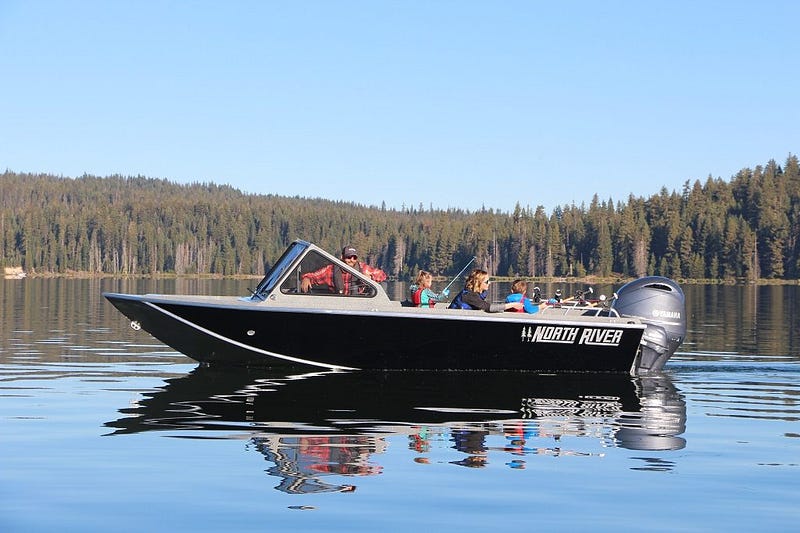North River Boats ESOP Conversion Aided by Mission-Oriented Lender

The following article is based on Allison Sackett’s original blog posted at Beneficial State Foundation.
Banking is often synonymous with extracting wealth from communities; but not all banks use this model. On the West Coast, Beneficial State Bank, founded by Kat Taylor and her husband, Tom Steyer, is committed to a triple bottom line: social justice, environmental well-being, and financial sustainability. The bank’s loans seek to enhance these values by supporting “a new economy that is fully inclusive, racially- and gender-just, and environmentally restorative.”
Beneficial State meets its goal of providing financial services and products that bring a “benefit to all, harm to none” through a unique ownership structure: Beneficial State Foundation owns the economic rights to the bank, which ensures that profits can only be distributed to the communities that the bank serves, rather than individual shareholders. In addition to tracking the impact of the bank’s activities and protecting its triple bottom line, Beneficial State Foundation is working to change the banking system, with the belief that the banking industry must be transformed so that it stops perpetuating harm and becomes truly accountable to all stakeholders.
Beneficial State Foundation is working to change the banking system, with the belief that the banking industry must be transformed so that it stops perpetuating harm and becomes truly accountable to all stakeholders.
In a recent article about one of the bank’s clients, North River Boats, Assistant Vice President of Underwriting for Commercial and Industrial Loans Allison Sackett writes about how Beneficial State Bank financed Brent Hutchings’ purchase of this distressed boat-manufacturing business in 2014, and then provided Hutchings with the capital needed to convert the business to an employee-stock ownership plan (ESOP) in 2016.
Financing Saves and Grows Jobs
“The loans that Beneficial State made to North River Boats to assist me in buying the company from a private equity owner saved 70 jobs by ensuring the business will stay in Roseburg,” Hutchings told Sackett. “This partnership helped avoid the near-certain outcome of being sold to a geographically distant strategic buyer, who would likely have closed this location. Now we are able to offer excellent jobs to people in a low-income, economically depressed region that has limited business formation and very few job opportunities.”
“This partnership helped avoid the near-certain outcome of being sold to a geographically distant strategic buyer, who would likely have closed this location.” — Brent Hutchings
North River Boats is now a thriving business, among the fastest-growing in Douglas County, a rural county in southwest Oregon. Hutchings used his initial loans to consolidate multiple locations into an 88,000 square foot facility in Roseburg. Sales have doubled, and the company now employs 135 workers. The business has helped reduce Roseburg’s unemployment rate from 12.2 percent in 2013 to 5.2 percent today.
Sharing the Wealth: Employee Ownership
In 2016, Hutchings began to think about a partial exit strategy, according to Sackett. Hutchings wanted to diversify his asset holdings, but he didn’t want to put the business or employees at risk. An ESOP, in which shares would be put into a trust for the benefit employees, seemed like the perfect option.
“The folks who built North River Boats and who comprise the ownership group today are wonderful people who are really committed to the customer and to one another,” Hutchings explained. His employees were already deeply engaged in “thinking like owners,” through a LEAN continuous improvement process on the manufacturing floor. By providing an ownership stake in the business, Hutchings solidified their commitment to strong performance.
Beneficial State Bank financed the ESOP transaction, and in April 2017 eligible employees were granted 33 percent of the company. In January 2018 more than 100 employees were vested and qualified for the program. Through the ESOP, employees build equity accounts that they can take with them when they leave the company.
When employees come up with processes that make the business more efficient — whether through reorganizing a manufacturing process or replacing incandescent light bulbs with LEDs — Hutchings makes sure everyone understands how the cost savings impact their ESOP shares. “It is like watching your 401(k) balance grow,” says Hutchings. “There is delayed gratification in any retirement vehicle, but each employee can meaningfully improve his or her retirement through the ESOP, at zero cost to the employee.”
Hutchings notes that working with a mission-oriented bank made a difference for him. “I think having a cultural fit in a business relationship is very important, and the time [the Bank] took to really understand our business and our needs resulted in a superior financial structure that gave us the flexibility we needed.”
Fifty by Fifty is working to transform the U.S. economy by growing employee ownership. Join our campaign, and we’ll send our monthly newsletter, filled with great company stories, right to your inbox.
